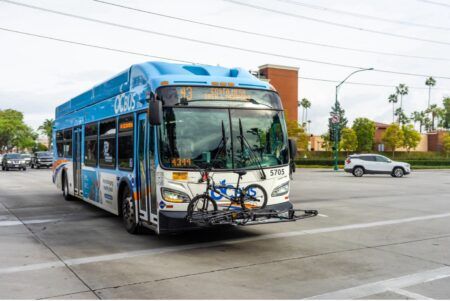German transportation planning consultancy and transport software developer PTV Group is leading a new research project dealing with autonomous and electric minibuses and buses and their potential for connected public transport and mobility services.
The project, Research into the preconditions for, and fields of application of, autonomous and electric (mini) buses in public transport has been commissioned and promoted by Germany’s Federal Ministry of Transport and Digital Infrastructure (BMVI). The two-year project will be managed by a consortium that consists of: PTV Planung Transport Verkehr AG (Management), PTV Transport Consult GmbH, the Karlsruhe Institute of Technology (KIT), and the consulting and audit firm Rödl & Partner.
The partners will analyze national and international approaches and projects, success factors, essential basic conditions and obstacles concerning the use of autonomous, electrified minibuses or shuttles.
A special focus will be on vehicle technology and infrastructure, space and traffic-related conditions, acceptance, as well as legal, operational and economic aspects and possible business models.
The results will be incorporated into a practical guide, including recommendations for action. The project will study some of the current challenges, including increasing traffic volumes, the requirements for energy efficiency, and reduction of greenhouse gas emissions and air pollutants. The team will consider unprecedented social and demographic changes, with urban areas experiencing bottlenecks and congestion, while there is a declining demand for public transport in rural areas, generating economic problems.
The project team will assess whether automation, networking options, and electrification can help public transport providers offer on-demand mobility services that are both flexible and convenient, while allowing them to offer economically viable services. Vehicle segments, drive types, and services could be expanded and vehicle sizes could be adjusted to respond to the actual demand, in terms of time and space. The integration of electric, fully automated and autonomous taxis and minibuses could become part of an integrated public mobility chain, including door-to-door services.
The aim of the research project is to analyze the conditions, fields of application and consequences of the use of minibuses in areas with different settlement structures and population densities, to create the basis for operating these public transport services in real life. As project coordinator, PTV will examine approaches and experiences, as well as factors supporting and inhibiting the use of autonomous and electric minibuses and buses. This will include literature reviews and web analytics, and software simulation approaches designed to model autonomous vehicle fleets.




